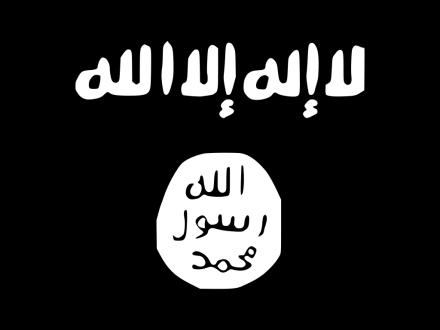
In the last week there has been much discussion about co-operating with Assad in order to confront ISIS. The problem that the US and its potential allies such as ourselves face is that an operation in Iraq alone against ISIS would fail to deal with the threat unless there was a Syrian counter-extremism operation as well. And that leads us directly into the arms of Bashar al-Assad. Or at least it would if we were seized by a strong bout of credulous gullibility.

You see, it’s not quite as Assad would like us to believe. In fact, the Assad regime and the growth of ISIS are two sides of the same coin. Assad has terrorised Sunni Syrians. He’s provided the space for ISIS to grow within its stronghold of Raqqa. Where he has confronted ISIS, he has been incapable of victory (Assad’s weakness is something that we seem to have conveniently missed in the debate about Syria in the past couple of years). ISIS is Assad’s get out of jail free card. While it exists and is presented for propaganda terms as his main adversary, an adversary that we share, there is every chance that any intervention in Syria can be further delayed and diminished. Assad needs ISIS and we ignore that at our peril.
So the question is not whether to focus on Assad or ISIS. They are symbiotically linked. ISIS is the greater threat to us directly as UK citizens enter the fray and return harbouring goodness knows what intentions. However, Assad is a murderous dictator, responsible for 200,000 deaths. Genocide is no longer enough to provoke intervention as we discovered last year. Now we face a security threat of our own that is tied to the actions of a genocidal brute, the calculations are different. It is time to reverse the error made last year in not intervening after Assad had committed a series of chemical attacks in Syria. This was Parliament’s nadir; it is now time to put things right.
As with any military intervention there needs to be a purpose, a means, and an objective. The purpose is two-fold: to confront a security threat, to end a genocide (Syria is a signatory of the UN Convention on Genocide) and to meet our responsibility to protect where we have a realistic means of doing so.
The means is to construct as wide a coalition as possible to support the confrontation of ISIS (it is already backed by US, Britain, France, Germany, Canada, Australia, Turkey, Italy, Poland and Denmark ). This should include unusual suspects in the Middle East. It is critical that this is not just seen as an attack on Sunni Islam. Sunni communities are critical to the defeat of ISIS. The next move is to weaken both ISIS and Assad. Assad’s air capability has been talked up but it is now depleted and only has any real capacity in and around Damascus. There can be no possibility of ‘boots on the ground’. Ultimately, the defeat of Assad and ISIS is down to the Free Syrian Army, Kurdish forces and the Iraqi Army, and the ability of the people themselves to resist both dictatorship and terrorists.
The US and allies should support the Kurds, the Syrian resistance and the Iraqi Army and provide them with air support and cover. But the objective cannot be occupation. The objective instead is to support the defeat of ISIS and the removal of Assad. By demonstrating their military weakness, space can be opened up for Sunni communities to turn on ISIS and for Alawite doubters to turn on Assad. While that objective remains unfulfilled, military backing and humanitarian assistance should be provided. The ultimate solution will only be political. However, politics takes place in context and until Assad and ISIS are fatally weakened then an acceptable political solution is much more difficult. Both Iraq and Syria will need genuinely pluralistic political institutions and they will need enormous support in developing those institutions.
What’s the alternative? As already analysed, the ‘co-operate with Assad’ route won’t work, is completely misguided and is surrounded with a stench of collusion with genocide. The other alternative is isolation. We’ve tried that. The body count is horrendous, the political situation dire, and the security threat has become much greater. There is the Russian factor. Will they intervene in favour of their ally, Syria, and will this exacerbate tensions elsewhere? It is unclear and some heavy-duty diplomacy will be required. What is clear is that the current reluctance of the US and others to intervene is seen as weakness and opportunity by Vladimir Putin. An intervention could well shift this calculus just as it did in Kosovo in 1999.
Which brings us on to a wider discussion about intervention. We quite simply have to free ourselves from the Iraq frame. The actions described above are not Iraq redux. There would be no occupation. The focus on the political dimension would be far greater. The coalition would be much broader. Intervention was the default prior to Iraq. This was quite right, it had successes where non-intervention had resulted in desperate loss of life and civil war and genocide within Europe. Iraq was hubristic and deeply misguided. So is non-intervention now.
Finally, will an intervention against Assad and ISIS eliminate conflict and tensions within the Middle East? Of course not. The regional tensions between different nations, ethnicities, and between Sunni and Shia Islam will be with us for some time. There will be new ISIS and Al-Qaeda style groups that arise as they now have a blueprint. All we can do is ensure that those who want to commit acts of slaughter are confronted where possible and space for political compromise is created. We will not see a new region of democratic flourishing. But at least we may be able to reduce the terrible human cost of what will be a long regional conflict. We can weaken those who wish to use their hard power to commit acts of wanton destruction.
Any intervention is fraught with risk and uncertainty. We are not all-powerful. We make enormous mistakes. Military intervention is no solution alone. But then nor is non-intervention and isolation. When we have the military, political and diplomatic means to diminish and even eliminate the domineering brutality of an Assad or an Abu-Bakr al-Baghdadi and we choose to walk away what does that say about us? Yes, it’s complex and a solution will be fraught. But the actions of both Assad and ISIS are actually quite simple – to terrorise fearful populations into submission. They will continue to do so unless we act.




More from LabourList
New intake Labour MPs: ‘Why we set up the Living Standards Coalition’
Andrew Pakes MP: ‘We need blue-collar Labour, not Blue Labour’
LabourList readers reveal their highs and lows of Labour’s first year